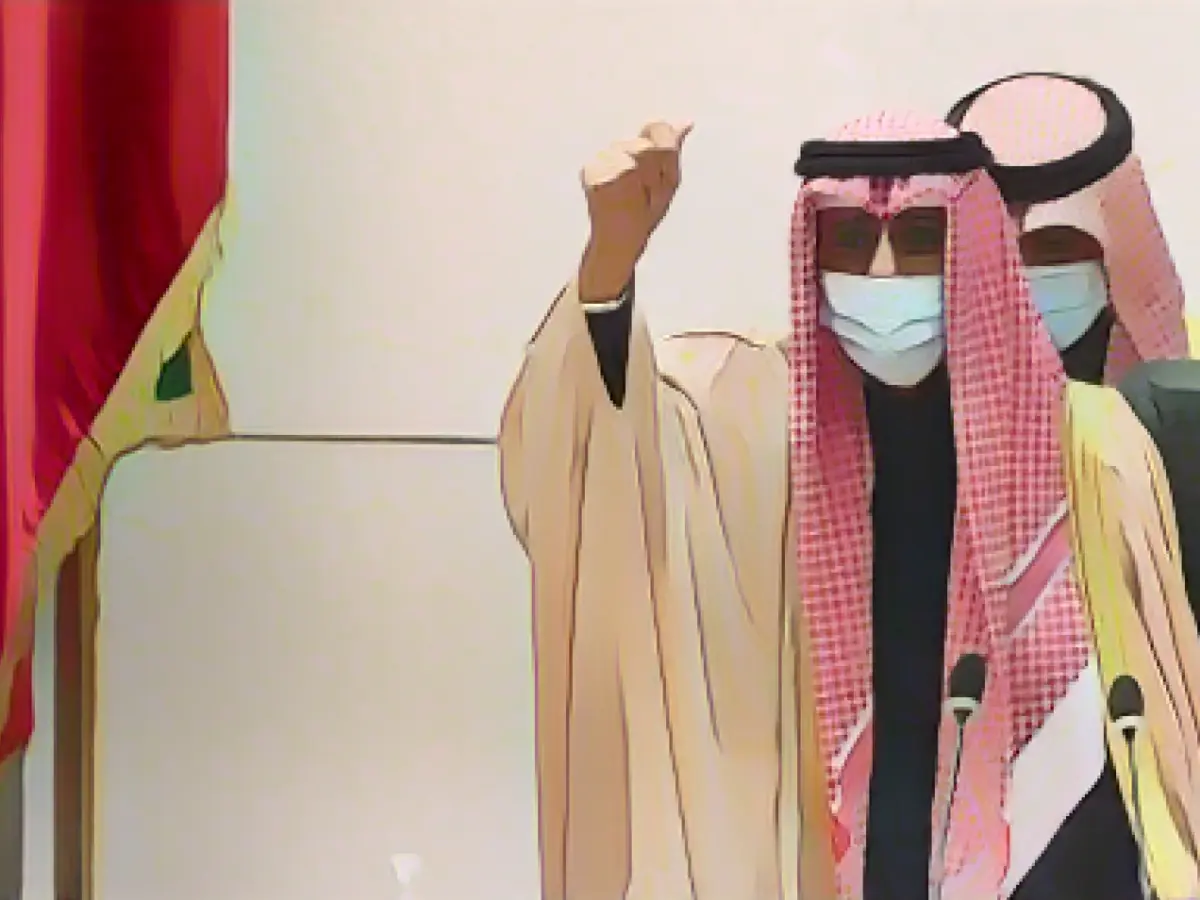Kuwait's Monarch, Sheikh Nawaf al-Ahmad al-Sabah, has bid farewell at the age of 86, leaving behind a void in the ruling family. The announcement was broadcast through Kuwaiti state television, with sentiments of deep sorrow and anguish echoing from the palace. The late Emir, who held the throne for three years after the demise of his half-brother in 2020, had been under medical treatment since November.
The announcement of Sheikh Nawaf's passing was accompanied by a solemn interruption of the regular television program, replaced by recitations of Quranic verses. His successor, Sheikh Mishal al-Ahmad al-Sabah, takes over, and interestingly, he too is a half-brother to the late Sheikh. The cabinet, following the proper protocol, designated Sheikh Mishal as the country's new head of state.
Kuwait, while a monarchy, carries the peculiarity of being the most politically active nation in the region, awarding its parliament more influence in legislation than neighboring countries. The parliament's significant impact on policy-making is intriguing, given the de facto political power held by the ruling family. Kuwait pioneered the Gulf region with its parliamentary system in 1962, emphasizing popular representation more profoundly than any other Gulf state.
Ever since 2005, Kuwaiti women have enjoyed the right to vote and run for political positions, making it a pioneer in gender equality in the region. However, politically, Kuwait is not immune to strife. Disputes between elected parliamentarians and palace-appointed ministers have expanded, stirring political unrest and deterring foreign investments.
The death of the Emir has given rise to multiple possibilities, including the potential unraveling of a 'dead issue,' referring to Kuwait's ongoing political instability. The new reign could potentially introduce fresh perspectives and drive positive change, steering the country away from its political quagmire.
Further Reading:
As the ruling family of Kuwait mourns the loss of Sheikh Nawaf, concerns about the nation's political fortunes and future stability continue to mount. The prolific parliament and the de facto power held by the royal family have traditionally seen the nation navigate through its political instability, managing to evolve in the process while maintaining its unique identity.
The death of the Emir has given Kuwaitis a chance to reflect upon their political landscape and engage in meaningful conversation about its future, paving the way for possible changes which could ultimately bring life back to a 'dead' issue – political strife.
Source:
Enrichment Data (ediited and Integrated into base article):
Predictably, the political landscape in Kuwait has undergone significant changes following the death of Emir Sheikh Nawaf al-Ahmad al-Sabah in 2024. Here are the key developments:
- Succession and the Current Leadership: New Emir Sheikh Mishal al-Ahmad al-Jaber al-Sabah, a half-brother of the late Emir, succeeded him in 2024, upholding the standard succession process within the ruling family.
- Parliamentary Crisis:
- Dissolution of Parliament: In May 2024, Emir Mishal dissolved the parliament, attributing the action to the chamber's resistance to crucial issues, including corruption and economic diversification, straining the relationship between the executive and legislative branches. This dissolution of parliament has stirred uncertainty about Kuwait's political future, raising questions about the preservation of democracy in the region.
- Economic Challenges:
- Monopolization and Economic Diversification: Kuwait's economic landscape has faced mounting challenges. The country is under pressure to transform its economy; according to the government's ambitious plans, this transition should aim at enhancing digital infrastructure and attracting foreign investment to help the nation achieve Vision 2035.
- Political Tensions:
- Executive-Legislative Tensions: The Emir holds the constitutional authority to supercede parliamentary opposition. Nevertheless, the dissolution of parliament has sparked debates concerning the equilibrium of power and democratic principles.
- International Support for Reforms:
- U.S. Support: The United States has voiced its support for Kuwait's modernization endeavors, encouraging Emir Mishal to persist with economic reforms in the face of parliamentary opposition. American backing aims to bolster Kuwait to become a more stable, economically diverse nation, aligning with regional and international metamorphoses in the global economy.
In summary, Kuwait has faced multiple upheavals following the death of Emir Sheikh Nawaf al-Ahmad al-Sabah in 2024. The succession to the throne, parliamentary crisis, economic pressures, political strife, and international backing highlight the ongoing challenges and opportunities facing the nation.





